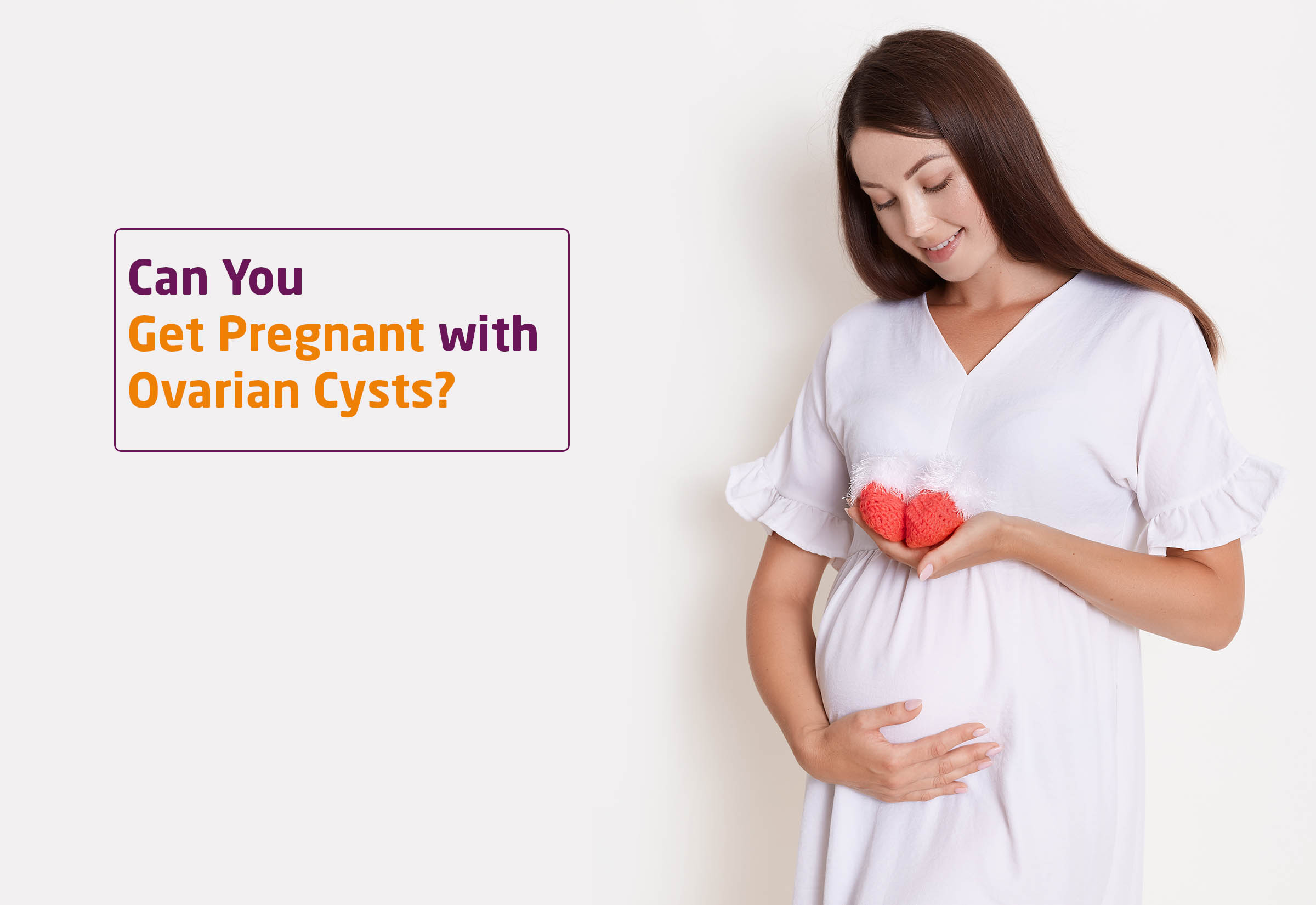Can You Get Pregnant with Ovarian Cysts?
For many women, the journey toward pregnancy can be both exciting and challenging. However, when faced with certain health conditions, such as ovarian cysts, questions and concerns may arise. Ovarian cysts are fluid-filled sacs that develop on the ovaries. It’s only natural to wonder whether these cysts can impact your fertility and the ability to conceive. In this blog post, we will explore the relationship between ovarian cysts and pregnancy, shedding light on common concerns and providing some essential insights.
Understanding Ovarian Cysts
Before delving into the topic at hand, let’s first understand what ovarian cysts are. Ovarian cysts are pockets or sacs filled with fluid on or within the ovaries. They are quite common and often develop as a normal part of a woman’s menstrual cycle. Most ovarian cysts are benign and go away on their own without causing any significant health issues.
Types of Ovarian Cysts
There are several common types of ovarian cysts, but the most common ones include:
- Follicular cysts: These cysts form when a follicle fails to release an egg during the menstrual cycle.
- Corpus luteum cysts: These cysts develop after an egg is released from a follicle but do not dissolve as they should. Instead, it seals off, causing the accumulation of fluid inside.
- Dermoid cysts: These cysts are formed from cells that produce human eggs. They can contain tissues such as hair, teeth, and even skin.
- Endometriomas: These cysts develop as a result of endometriosis, a condition where the tissue lining the uterus grows outside the uterus.
Can Ovarian Cysts Affect Fertility?
The impact of ovarian cysts on fertility can vary depending on various factors, including the type and size of the cyst, its location, and the individual’s overall reproductive health. In many cases, small functional cysts do not interfere with conception and can often resolve on their own within a few menstrual cycles.
However, certain types of cysts, such as endometriomas, can be more problematic. Endometriomas can affect fertility by damaging the ovarian tissue and interfering with the release of eggs. They can also cause inflammation and scar tissue formation, which may lead to blockages in the fallopian tubes, hindering fertilization.
Furthermore, larger cysts, especially those that grow on the surface of the ovaries or within the ovary itself, can potentially disrupt the normal functioning of the ovaries and impact fertility.
Getting Pregnant with Ovarian Cysts
The ability to conceive with ovarian cysts depends on various factors, such as the size, type, and location of the cyst, as well as the woman’s overall reproductive health. If you have been diagnosed with ovarian cysts and are trying to conceive, it is essential to consult with a fertility expert who can provide guidance based on your individual circumstances.
In many cases, small functional cysts do not require treatment and may resolve on their own. However, if the cyst is causing pain or is determined to be affecting fertility, medical intervention may be necessary. Treatment options may include hormonal therapy, surgical removal of the cyst, or in more severe cases, removal of the ovary.
It is worth noting that even if you have an ovarian cyst, you can still conceive naturally. Many women with ovarian cysts have successful pregnancies. However, if you experience difficulties conceiving, it is essential to seek medical advice to identify any underlying factors and determine the most appropriate course of action.
Conclusion
Ovarian cysts are a common occurrence among women and do not always interfere with fertility or the ability to conceive. While small functional cysts often resolve on their own without causing complications, larger cysts or specific types of cysts, such as endometriomas, may impact fertility by affecting the normal functioning of the ovaries or causing blockages in the fallopian tubes.
If you are trying to conceive and have been diagnosed with ovarian cysts, it is crucial to consult with a fertility expert who can assess your situation and provide appropriate guidance. They will consider factors such as the size, type, and location of the cyst, as well as your overall reproductive health, to determine the best course of action.
In some cases, treatment may be necessary to manage the cyst and improve your chances of conception. This can include hormonal therapy to regulate the menstrual cycle and promote the resolution of the cyst, or surgical removal of the cyst if it is deemed necessary. In severe cases where the cyst is affecting the ovary significantly, the affected ovary may need to be removed.
It’s important to remember that every woman’s situation is unique, and the impact of ovarian cysts on fertility can vary. While some women may experience difficulties conceiving due to ovarian cysts, many others can still conceive naturally. If you are facing challenges getting pregnant or have concerns about the impact of ovarian cysts on your fertility, seeking professional medical advice is crucial. A fertility expert or reproductive endocrinologist can provide specialised care and guidance tailored to your specific needs.
Additionally, maintaining a healthy lifestyle, including a balanced diet, regular exercise, and stress management, can positively contribute to overall reproductive health. Taking steps to optimize your overall well-being can potentially improve your fertility outcomes.
